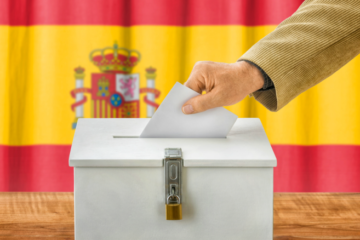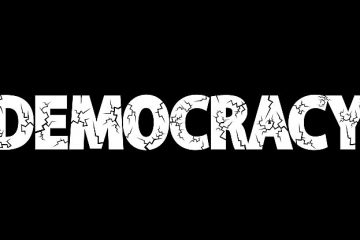Limits, boundaries, and rules, are necessary


In my previous two columns on what it means to be a Macedonian conservative, I have expounded on issues of gratitude as well as the wisdom found in the old ways and tradition, and applied that to the Macedonian conservative. In this column, I want to discuss the role of limits, boundaries and rules, and how they are necessary in life.
Alas, there are limits in life. We see this everywhere. In our biological selves, for instance: there are limits as to how fast a man or woman can run, how long a person can hold his or her breath, how long we can live (or to put it differently, we all have a built-in expiration date), etc. These limits exist in our biological selves for good reasons.
And there are good reasons why there must be limits in other areas of our lives as individuals and as societies. There must be limits and boundaries as to what we say and do, both as individuals and as governments, who are, after all, elected by the people. Without limits and boundaries there is chaos. Think of it like this: you might enjoy watching or even playing basketball, a fairly global sport these days. Within the game, there are boundaries to the court – it has certain measurements where the players can play and others must stay out. And then there are rules and there are referees to enforce those boundaries and those rules. But within those boundaries and rules the players are absolutely free to do whatever they can, using their skills, talents and the strategies of the coaches to win the game. But what if there were no boundaries or rules? What if there were no limits? What if the players were “free” to do whatever they wanted? Would the game be any fun to play or watch? Of course not. Chaos would rule. There would be no point in playing or watching the game.
Gregory Collins, a Postdoctoral Fellow in the Department of Political Science at Yale University, writes about limits and English philosopher John Locke (1632-1704), considered to be one of the most important Enlightenment thinkers, in “The Imaginative Conservative,” stating “Order is inextricably linked with limits…Not only do limits on individual action occupy a role in Locke’s moral philosophy, but limits on institutional action exert even a larger role in preserving ordered liberty in Locke’s political philosophy. Indeed, students of Western political thought are familiar with his lucid descriptions of political institutions—such as the rule of law, popular sovereignty, and separation of powers—that emerge as the clearest political expressions of limited and self-restrained government. And so, in reading Locke’s Second Treatise, it is impossible to avoid the conclusion that limits are the essence of the Lockean conception of government. Government’s legitimacy is limited by the consent of the governed.”
Collins further links Locke’s thoughts to the necessity of limits in human action stating that individual freedom is not a “state of license” and that the proper behavior of individuals in exercising their freedom is “within the bounds by the law of nature” per Locke. “[T]he law of nature stands as an eternal rule to all men, legislators as well as other,” Locke states concluding that while individuals possess rights, those rights come with responsibilities and duties.
In summary, both for governments and for individuals, per Locke, above, we find that Natural Law leads to natural rights and upholds and confirms individual freedom; that individual freedom, however, is not license and that individual freedom must operate within the bounds of the law of nature or natural law and that this applies to individuals as well as legislators, i.e. those who make the law; that individuals possess rights, but those rights come with responsibilities and duties; that Natural Law verifies moral limits; that Ordered Liberty (or more simply put, order in society, a prerequisite for a democracy of any kind) is inextricably linked with limits on both individuals and institutions; that limits are a core of conservative thinking; that limited and self-restrained government have, as hallmarks of themselves, the rule of law, popular sovereignty and that separation of powers; and finally, that government legitimacy is limited by the consent of the governed.
How does this apply to the Macedonian conservative? The Macedonian conservative understands that government cannot and should not do everything for everyone all the time. That would invite tyranny. There is a role for government, and it is limited in its powers, by the consent of the governed, and it is limited in what it can and should do. The desire of some Macedonians to see government involved in everything is not only wrong, but dangerous.
At the same time the Macedonian conservative understands that limits apply to us as individuals as well and that just because we have the individual freedom to do or say something does not mean that we should say or do something; individual freedom is not license, freedom, rightly understood and practiced, is liberty. As American author George Will writes in The Conservative Sensibility, “A hawk is free as is a salmon, in that they may go and do as they are inclined. Liberty, however, is reserved to human beings, who are thinking creatures who can choose how they shall be inclined. Reasoning about the proper use of freedom is liberty in practice.”
Conservatives – wherever they live – understand that these things – limits, boundaries, and rules – are vital both to us as individuals and to our governed societies in order to allow for human flourishing.



0 Comments